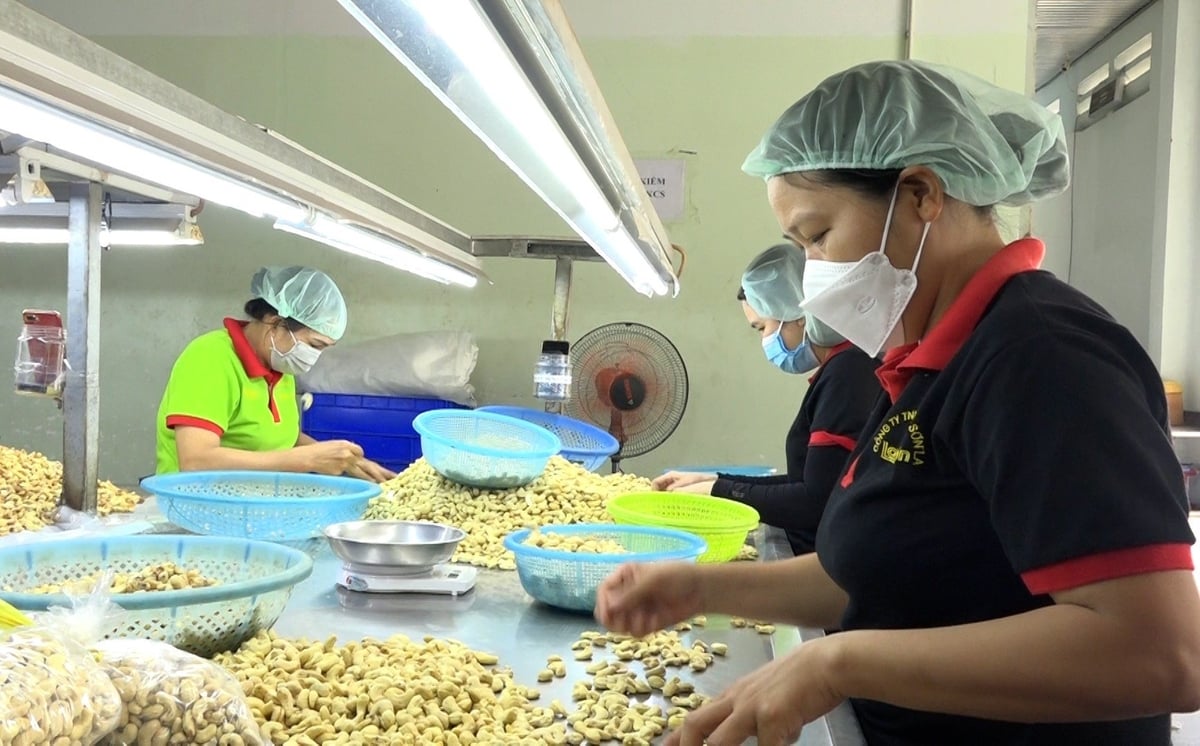November 27, 2025 | 14:43 GMT +7
November 27, 2025 | 14:43 GMT +7
Hotline: 0913.378.918
November 27, 2025 | 14:43 GMT +7
Hotline: 0913.378.918

Mr. Pham Binh An, Deputy director of the Ho Chi Minh City Institute for Development Studies, delivers remarks at the forum. Photo: Hoang Hung.
At the CEO Forum 2025 themed “Solutions for businesses to expand market share expansion amid trade wars,” organized on May 21 by the Saigon Giai Phong Newspaper in collaboration with the Ho Chi Minh City Institute for Development Studies (HIDS), Mr. Pham Binh An, Deputy Director of HIDS, stated: “Market expansion is no longer a long-term strategy but a mandatory condition if Vietnamese enterprises wish to survive and grow during this era of comprehensive competition.” He also emphasized that businesses need to shift their mindset from passive to proactive to seize opportunities.
According to Mr. Pham Binh An, the world is entering a phase of large-scale supply chain restructuring due to the impacts of the U.S.–China trade war. The trends of “friendshoring” and “nearshoring” are prompting international companies to relocate production out of China, creating opportunities for countries like Vietnam.
However, to capitalize on these opportunities, Vietnamese enterprises must quickly improve their production and management capabilities to meet new requirements.
Nonetheless, alongside opportunities come existing risks. Many Vietnamese businesses are suspected of becoming transshipment points to evade tariffs, leading to potential trade defense lawsuits. Additionally, domestic enterprises still lag behind foreign-invested enterprises (FDI). This undermines international partners' trust and affects the image of Vietnamese brands.
In reality, data from the first quarter of 2025 shows that Vietnam achieved a trade surplus of over $43 billion with the U.S. However, the majority of this value comes from the FDI sector, particularly in textiles, wood, and seafood. The main reason is that domestic enterprises often struggle to meet international standards due to limitations in technology, management processes, and legal support.
Many small and medium-sized enterprises still lack the resources to invest in upgrading their production systems to international standards.
This creates a significant “bottleneck” in enhancing Vietnamese enterprises' position in the global export market. Without rapid improvement, domestic businesses will continue to be left behind in the international trade arena. Investing in product and production process improvements is a key solution to overcome this bottleneck.
In light of the aforementioned challenges, Mr. Pham Binh An believes that to expand markets effectively and sustainably, businesses need to enhance their compliance and traceability capabilities. To achieve this, enterprises should invest in quality management systems, supply chain traceability, and adopt international certifications such as FSC (wood industry), HACCP (food), WRAP (textiles), etc.

Expanding markets helps businesses reduce risks amid global supply chain disruptions. Photo: Ha Duyen.
Regarding markets, businesses should categorize them into groups: Highly protected markets (like the U.S., EU), which require strict standards compliance, and potential markets (India, the Middle East, Africa) to intensify trade promotion. Simultaneously, they should leverage the advantages of free trade agreements (FTAs) such as CPTPP, EVFTA, RCEP, etc. Simultaneously exploiting both developed and niche markets will help businesses minimize risks.
Furthermore, Resolutions 57, 59, 66, and especially Resolution 68 on private economic development are opening new legal corridors for digital transformation, institutional reform, and international integration—opportunities that businesses need to seize quickly. Digital transformation is no longer a trend but has become a mandatory requirement for survival and competition.
Additionally, Vietnamese enterprises need to transition from outsourcing to building their own brands (OBM). Mastering design, creativity, and product quality will help elevate the value chain and reduce dependence on foreign partners. At the same time, businesses should link together to form a sustainable ecosystem. Building strong domestic brands will give businesses a stronger voice in the international market.
“We cannot expand market share if we continue to go it alone. Businesses need to connect with each other, coordinate with management agencies, and industry associations to form a healthy and sustainable competitive ecosystem.” Such collaboration will help share resources, reduce costs, and enhance market access capabilities.
Sharing the same viewpoint, Ms. Ly Kim Chi emphasized that businesses need to avoid overreliance on traditional markets. To cope with increasingly complex tariff policies, they should seek and expand into niche markets, such as the halal market.
The halal market is a segment with significant potential but remains untapped by many Vietnamese businesses.
Moreover, experts also see digital transformation and e-commerce development as vital solutions to reduce costs, directly reach consumers, and expand distribution channels, especially with the B2B model. Cross-border e-commerce will be a strategic tool in expanding global markets.
Translated by Huong Giang

(VAN) China’s cooking oil is suddenly flooding into India. It all comes down to a soybean surplus that Beijing doesn’t quite know what to do with.

(VAN) An Giang promotes supply-demand connections, standardizes quality and builds value chains, creating a foundation for sustainable bird’s nest development and aiming to expand exports.
/2025/11/24/5339-4-nongnghiep-075331.jpg)
(VAN) Recently, the conference on 'Sustainable Fisheries Linkage Chain - Tilapia for Export' took place in Tien Hai commune, Hung Yen province.
/2025/11/21/4309-2-153400_128.jpg)
(VAN) Green and low-emission rice is paving the way for Vietnamese rice to enter high-end markets, marking the beginning of a transformation journey toward greening and elevating the national rice brand.

(VAN) ‘Right to Win’ outlines a national action plan that shapes a new vision for Viet Nam’s agriculture in an era of renewal and global integration.

(VAN) Lam Dong’s farmed sturgeon output this year is expected to reach 2,300 tons, worth VND 450 billion, affirming the brand’s position on the market.

(VAN) A surge in Ukrainian egg exports, largely driven by soaring sales to the UK over the last few years, has notably pushed up egg prices on the domestic market.